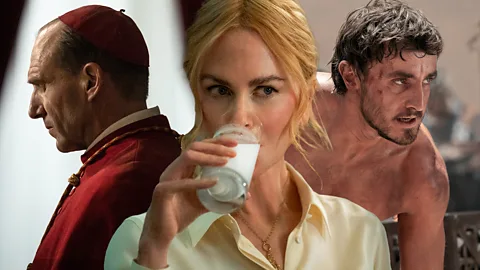 Focus Features/ A24/ Paramount Pictures/ BBC
Focus Features/ A24/ Paramount Pictures/ BBCBBC film critics Nicholas Barber and Caryn James pick their highlights of the year, including an erotic thriller with a twist, an intimate papal drama and the return of a swords-and-sandals epic.
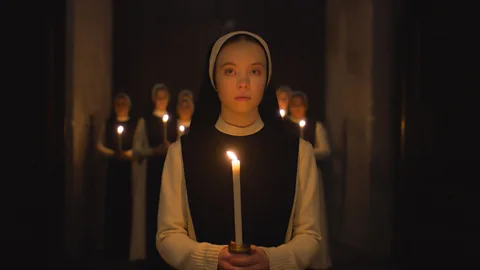 Alamy
Alamy1. Immaculate
Sydney Sweeney (also the film’s producer) stars in this wonderfully creepy horror movie about an American novice nun who learns that all is not as it seems in an Italian convent. Immaculate could easily have been a trashy nunsploitation B-movie, but it’s (mother) superior in many ways, from the bold commentary on men’s treatment of women to cinematography that recalls Renaissance religious art. What’s most striking about the film, though, is its willingness to take things to jaw-dropping extremes. There are countless moments when you’re watching it and you think, “No… they’re not going to go there… they wouldn’t…” And then they do. (NB)
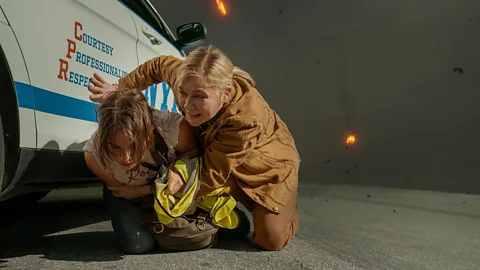 A24 Films
A24 Films2. Civil War
Reactions to this film were almost as polarised as the divided country it depicts, a sure sign that Alex Garland hit a nerve with his vision of a near-future US that has descended into civil war under a fascist president. Kirsten Dunst is at the centre as a photojournalist who, along with her colleagues – played by Wagner Moura, Cailee Spaeny and Stephen McKinley Henderson – put themselves at great risk to witness and report the action around them. Garland makes that action visceral and explosive, from guns and tanks on the streets of Washington DC to violent one-on-one encounters in the supposedly calm countryside. But the most harrowing aspect of the film is how acutely and convincingly he positions the fiction as a hairsbreadth away from the real world around us. Some viewers complained that Garland didn’t set up a more pointed political conflict, but to me the film is chilling enough in its vision of an all-too-credible war-torn future. (CJ)
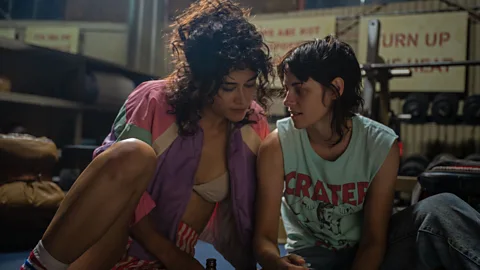 A24 Films
A24 Films3. Love Lies Bleeding
Kristen Stewart’s character has a miserable life at the start of Love Lies Bleeding, as Stewart’s characters so often do. She manages a dingy gym in a small town, she avoids her gangster father (Ed Harris), and she tries in vain to persuade her sister (Jena Malone) to end her abusive marriage. But everything changes when a charismatic drifter played by Katy O’Brian stops off on her way to a body-building contest in Las Vegas. Sparks fly, and the fireworks of sweaty sex, shocking violence and all-round craziness keep exploding. A stylish, blackly comic lesbian film noir from Rose Glass, the British director who made her feature debut with acclaimed horror Saint Maud, Love Lies Bleeding is the most fun and imaginative indie crime thriller since Good Time (2017), which happened to star Stewart’s Twilight co-star, Robert Pattinson. (NB)
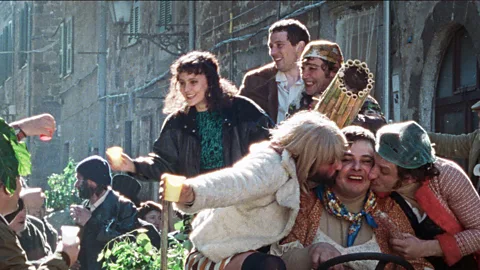 Neon
Neon4. La Chimera
Alice Rohrwacher’s films – like 2018’s great, fabulistic Happy as Lazzaro – are tinged with magic realism. La Chimera, set in Tuscany in the 1980s, is among her best as it walks the line between richly-textured realism and dreams. Josh O’Connor stars as Arthur, an Englishman who works with a band of local Italian graverobbers to find ancient artifacts in Etruscan tombs to sell on the black market. Seedy looking and sad, Arthur is reeling from losing his love, Beniamina. As one character puts it, he is searching in the underground for “a door to the afterlife” and at times seems to find it. Rohrwacher has an eye for finding beauty in ruins, whether the big crumbling house where Beniamina’s mother (Isabella Rossellini) lives, or Arthur himself. The plot keeps moving, with danger, crime and escapes from the police, but the film is shaped by O’Connor’s poignant, low-key but charismatic performance and Rohrwacher’s elegant vision, lushly filmed by the great cinematographer Helene Louvart. (CJ)
 Neon
Neon5. Robot Dreams
Robot Dreams is a cartoon like no other. It’s a Spanish-French production, and yet it’s a loving homage to the vibrancy of 1980s New York. It’s animated in a 2D picture-book style, and yet it’s bursting with tiny details. It doesn’t have any dialogue, and yet it’s peppered with wit and wisdom. It’s all about a dog and a robot, and yet it’s a richly human exploration of loneliness and companionship. Adapted from Sara Varon’s graphic novel and directed by Pablo Berger, this Oscar-nominated gem tells the enchanting tale of two friends who find heartwarming joy in each other’s company – and then have to work out whether they can learn to live apart. (NB)
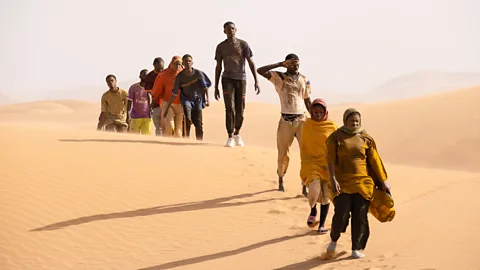 Cohen Media Group
Cohen Media Group6. Io Capitano
Few migrant dramas are as stirring, humane and suspenseful as this one, about the treacherous journey of a 16-year-old boy as he leaves Senegal in search of a better life. Matteo Garrone (Gomorrah) won the award for best director at the 2023 Venice Film Festival for the film, and his non-professional star, Seydou Sarr, won best young actor as the fictional Seydou, a gentle boy determined to make it to Italy along with his cousin, Moussa. Each stage of the boys’ travels presents a different danger. They set out across the Sahara with a group of other migrants, and when one woman dies, Seydou sees her gliding through the air, as if the reality is too much to take in. In Libya he is imprisoned and tortured. In the final stages he must pilot a boat full of migrants toward Italy, giving the film its title, Io Capitano (I Captain). With relatively few words, Garrone and Sarr create an eloquent, piercingly real film about one person, whose story resonates with the situation of millions around the world. (CJ)
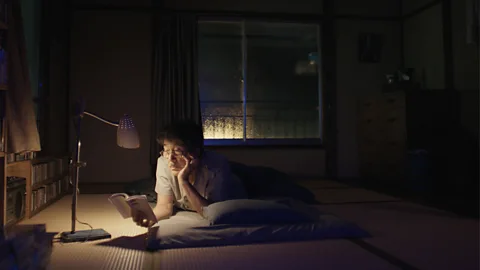 Neon
Neon7. Perfect Days
You wouldn’t necessarily think that someone who cleaned public toilets for a living had found the secret to happiness, but Wim Wenders’ Perfect Days makes a strong case for the idea. A Japanese-language film from the German writer-director, this hypnotic character study follows Hirayama (Kōji Yakusho) around Tokyo as he carries out his janitorial duties, waters his plants, reads novels, listens to American rock music and takes photos of trees, all with the same quiet diligence and pride. There are hints here and there about how Hirayama’s life has changed, and how it might change in the future, but the core of the film is a documentary-like meditation on the serenity of an existence stripped to its essentials. Also, the public toilets themselves are so well designed that Perfect Days could well turn them into tourist attractions. (NB)
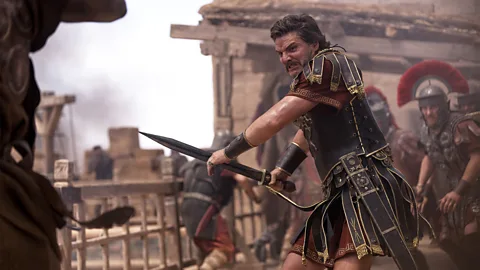 Aidan Monaghan
Aidan Monaghan8. Gladiator II
Ridley Scott’s sequel to his 2000 swords-and-sandals Oscar winner is supremely entertaining, from Paul Mescal’s dynamic (and underrated) starring role as Lucius, a gladiator and secret heir to the Roman Empire’s throne, to the relentless, enthralling action in the Colosseum, where the gladiators’ antagonists include sharks, baboons and rhinos. Mescal anchors the film and lets us see Lucius’s anger and sensitivity. Outside the Colosseum, Denzel Washington goes over-the-top as the robe-wearing, bejewelled tycoon who buys Lucius and adds him to his stable of fighters, Pedro Pascal turns up as a Roman general, and Joseph Quinn and Fred Hechinger add a creepy note as the debauched twin emperors who sit in Lucius’s rightful place. Colourful and wonderfully excessive, Gladiator II is everything you could want in a popcorn movie, and proof that when Scott is at his best, he can turn out an extravaganza like no one else. (CJ)
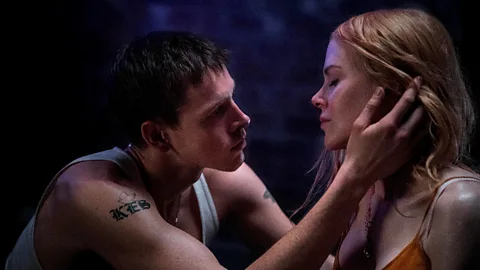 A24
A249. Babygirl
Babygirl stars Nicole Kidman as the high-powered boss of a zillion-dollar robotics company, alongside Harris Dickinson as an arrogant young intern. As soon as she lays eyes on him, she has a feeling that he might be able to satisfy her in ways that her loving husband (Antonio Banderas) can’t, and a highly risky – and risqué – game of domination and submission begins. This could easily be the premise of a glossy erotic thriller from the 1980s or 1990s, and Babygirl sometimes looks as if that’s exactly what it is, what with its gorgeous stars, designer clothes and glamorous settings. But writer-director Halina Reijn (Bodies Bodies Bodies) has too much sympathy for her characters to treat them as the predatory seducers and hapless victims who might have been in such a film a few decades ago. Instead, they are flawed individuals with messy lives and conflicting desires, which makes their affair all the more intriguing and unpredictable. (NB)
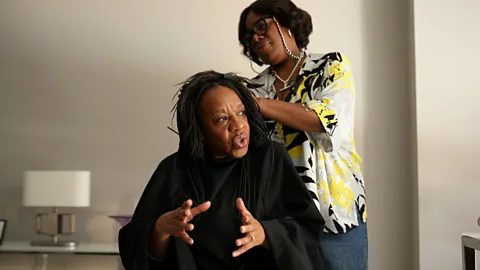 Thin Man Films
Thin Man Films10. Hard Truths
As he so often does, Mike Leigh shows us that a film doesn’t have to be big or boisterous to be spectacular. Twenty-eight years after Secrets and Lies, the director reunites with Marianne Jean-Baptiste, who stars as Pansy, so depressed and so convinced that the world is against her that she lashes out at everyone, from strangers to those who love her best. It’s an amazing performance, fierce and angry yet full of empathy and understanding. Without sentimentality or special pleading for Pansy, Leigh and Jean-Baptiste build enormous sympathy for this woman whose bitterness and harsh behaviour come from a profound unhappiness that is inexplicable to her. The supporting cast, especially Michele Austin as Pansy’s sister, create a family concerned for her but baffled about what to do. Once more, Leigh proves himself a master at immersing us in the reality of ordinary lives in a film that, despite its prickly heroine, is at times laced with wit and always infused with warmth. (CJ)
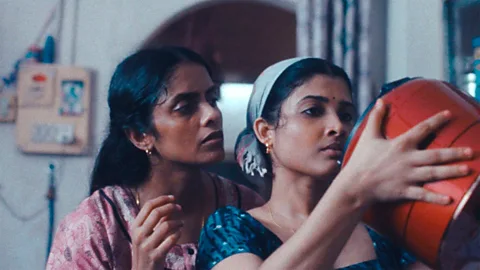 Janus Films
Janus Films11. All We Imagine as Light
Payal Kapadia’s first feature film was a documentary which came out in 2021, but she was largely unknown (by me, at least) until this year, when the release of her first drama propelled her into the ranks of the world’s most exciting young directors. All We Imagine as Light stars Kani Kusruti, Divya Prabha and Chhaya Kadam as three Indian women of different generations who all work in the same Mumbai hospital, and who all share a kind of heartache: one is widowed and soon to be evicted from her marital home, one lives thousands of miles away from a husband she barely knows, and one is in love with a man her parents will never let her marry. As the women mull over the question of whether to stay in Mumbai or to move back to their home villages, this soulful, poetic film pays tribute to the dreamy magic of wandering around a busy city at night. Blurring the boundaries between fiction and documentary, it is so intimate and evocative that it makes you feel as if you’re wandering around the city, too, side by side with some beloved friends. (NB)
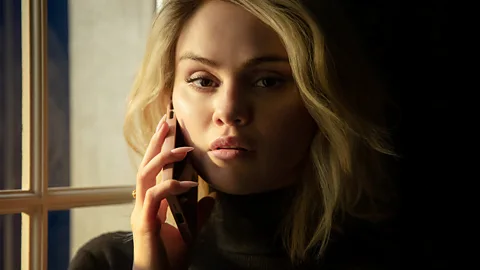 A24
A2412. Emilia Pérez
There is nothing like Emilia Pérez. Artistically daring, deliriously bonkers and entertaining, Jacques Audiard’s musical drama is so outlandish it shouldn’t work, but the parts fit together with such wit and kinetic energy it totally does. Karla Sofía Gascón plays a Mexican crime lord, Manitas, who transitions and becomes Emilia with the help of her lawyer (Zoe Saldana). Emilia masquerades as a distant cousin to be close to her own wife (Selena Gomez) and children, and becomes a philanthropist, only to have the criminal impulse catch up with her. The film is full of singing and dancing, with musical numbers next to scenes of violent action. Yet beneath that energetic surface the characters evolve and become heart-piercing by the end; Saldana and Gomez are standouts. In a landscape of superheroes and sequels, wonderful though some of them are, this film stands out for its originality, as Audiard wrangles a splashy mix of genres into one bold and touching film. (CJ)
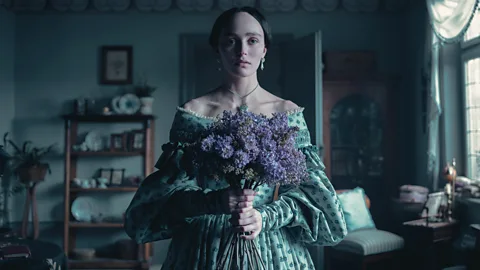 Aidan Monaghan
Aidan Monaghan13. Nosferatu
For too long now, on-screen vampires have either been sexy (True Blood, Twilight) or silly (Hotel Transylvania, Renfield), but Robert Eggers’s towering remake of FW Murnau’s silent classic takes them right back to their ancient roots in European folklore, at the same time as putting a modern spin on the themes of Bram Stoker’s original Dracula novel. Nosferatu is a painstakingly researched period piece set in Germany in the early 1800s. Bill Skarsgård plays the undead Count Orlok – and, for once, we’re treated to a vampire who isn’t a rakish charmer or a moody loner but a genuinely strange and monstrous demonic force. Still, Eggers’s gothic melodrama isn’t really about the count, as striking as he is, but about Thomas Hutter (Nicholas Hoult) and his wife Ellen (Lily-Rose Depp), a potentially happy couple who are threatened as much by their insecurities about class and sex as they are by the Transylvanian bloodsucker who has moved into the tumbledown manor house up the road. (NB)
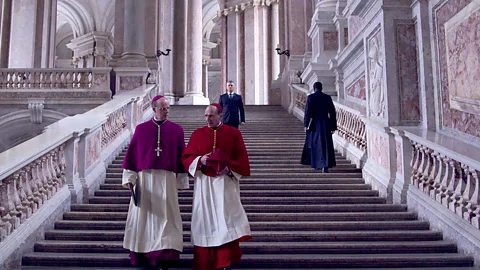 Focus Features
Focus Features14. Conclave
Conclave is that rare thing: an enthralling commercial film that is also full of artistry, elevated by Edward Berger’s meticulous direction and Ralph Fiennes’ powerfully subtle performance as a cardinal running the election of a new pope. Berger, whose All Quiet on the Western Front won the best international film Oscar for 2022, gives the film the momentum of a great political thriller as it follows the cardinals’ manipulations, dirty tricks and wheeling and dealing. The cinematography is stunning, with beautifully composed shots full of the rich colours of the cardinals’ robes and the grandeur of the Vatican setting. Fiennes’ Cardinal Lawrence is all surface calm, yet we see how he is anguished as he questions his own faith. And there are dazzling, sharply honed performances from Stanley Tucci, adding a droll touch as a contender for the top job, John Lithgow as a high-ranking cardinal with scandals to hide, and Isabella Rossellini as a nun who often stands in the background and finally chooses her moment to say a few sharp words. Like the best Hollywood films, Conclave is smart, sophisticated and hugely enjoyable to watch. (CJ)
 Neon
Neon15. Anora
A worthy winner of this year’s Palme d’Or, the top prize at the Cannes Film Festival, Anora tells the wild, whirling tale of Ani (Mikey Madison), a young Russian-American woman who dances in a Manhattan strip club. In exchange for a hefty fee, she agrees to have sex with Vanya (Mark Eydelshteyn), the empty-headed son of a Russian oligarch, and she soon comes to believe that they might have a future together. Vanya’s parents don’t agree. Madison and Sean Baker, the film’s writer-director, have created a character with so much verve that she leaps off the screen, and her farcical misadventures are thrilling and hilarious. But Baker always keeps things rooted in the earthy reality of contemporary American life, just as he did in such previous films as Tangerine and The Florida Project. As deliriously entertaining as it is, Anora is an authentic picture of people who are down to their last few dollars. (NB)
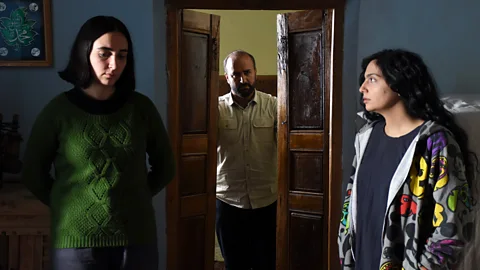 Neon
Neon16. The Seed of the Sacred Fig
Ignore the confusing title. This Iranian film is one of the most potent and timely of the year. At its centre is a family that embodies the political and generational conflict roiling that country. Iman, the stern father, is an investigator for the Islamic Revolutionary Court in Tehran, his wife is meek and compliant, and their two young adult daughters are part of the women’s protest movement on the streets. Director Mohammad Rasoulof includes some actual footage of 2022 protests, but the film is a taut, suspenseful drama, not a tract. When Iman loses his gun and accuses his family of taking it, the true harshness of his personality and the depths of the daughter’s resistance to him and the country’s patriarchy turn the story into a harrowing thriller. Rasoulof shot the film in secret, fled Iran and a prison sentence to present it at Cannes and now lives in exile in Germany. But the action on screen is what matters, and that is an intimate, intense drama that captures the brutal impact politics can have on individuals. (CJ)
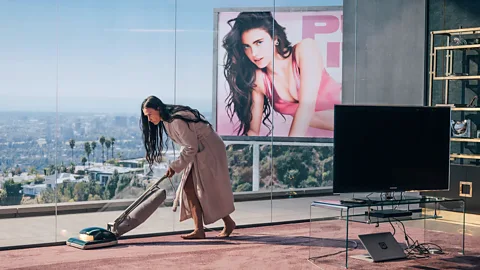 Mubi
Mubi17. The Substance
Coralie Fargeat’s genre-crossing hit starts as a slick and shiny showbiz satire in the same neighbourhood as Sunset Boulevard: its heroine is a former Oscar-winning superstar (Demi Moore) who is deemed to be past her prime by the obnoxious producer (Dennis Quaid) of her daytime TV show. The film then changes into a surreal sci-fi drama in the vein of Doctor Jekyll and Mr Hyde, as the ex-star pays to have herself cloned, so that her “younger, better” duplicate (Margaret Qualley) can take over the show. And after that, The Substance morphs into a slimy monster movie for its over-the-top gross-out finale. The commentary on Hollywood’s ageist and sexist tendencies isn’t exactly subtle, but, well, subtlety is hardly the point. Fargeat proves that if you have something to say, and you say it forcefully enough, then a relatively low-budget film can still get people to watch it – and to argue about it afterwards. (NB)
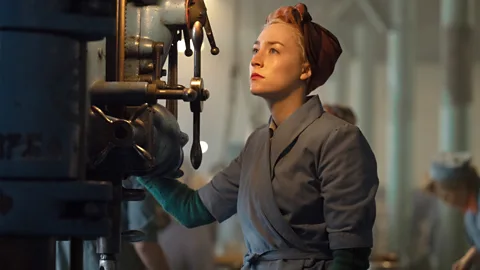 Apple TV+
Apple TV+18. Blitz
Steve McQueen expands his already formidable range in this affecting film that plunges us into the lives of a single mother and her son during the World War Two bombing of London. Saoirse Ronan plays Rita, a factory worker who lives with her father (Paul Weller) and nine-year-old George (Elliott Heffernan). Although McQueen is known for grittier films, like Hunger and 12 Years a Slave, here he seamlessly blends the wartime setting with adventure, social commentary and warm family feeling. When George runs away to avoid being sent to a safe place in the country, his journey takes on overtones of Oliver Twist. The film tackles the racism that surrounds the family, including the way George’s father, an African immigrant, was unfairly arrested and deported. The actors are natural even in the most extraordinary circumstances, led by Ronan, who allows us to see Rita’s intense love for her son from the start. McQueen’s bravura film-making creates a ferocious sense of being in a bombardment, but ultimately this moving war story is about family in all its emotion and heartbreak. (CJ)
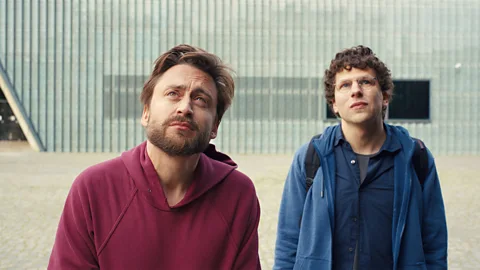 Searchlight Pictures
Searchlight Pictures19. A Real Pain
Two decades into his illustrious career as an actor, which includes everything from Zombieland to The Social Network to Sasquatch Sunset (another highlight of 2024), Jesse Eisenberg proves that he is just as talented behind the camera as he is in front of it. His second film as a writer-director revolves around two cousins, David and Benji, played by Eisenberg and Kieran Culkin. David is careful and cautious, while Benji is an exasperatingly egotistical extrovert, but in an attempt to rebuild the relationship they once had as boys in New York, the cousins go on a guided tour of Holocaust sites in Poland. What’s so remarkable about A Real Pain is that it deals with its sobering subject matter with respect and sensitivity, and yet it’s packed with laughs from start to finish. The key is that the comedy always feels uncontrived, because it seems to arise naturally from the cousins’ personalities. Eisenberg has managed to make a sincere, insightful and profoundly touching film which is also the year’s funniest. (NB)
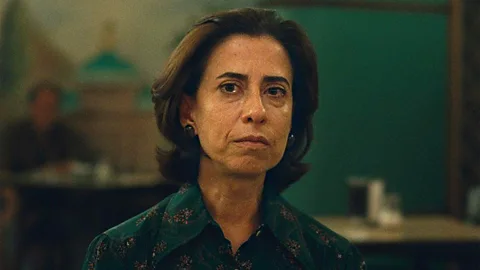 La Biennale di Venezia
La Biennale di Venezia20. I’m Still Here
Walter Salles (The Motorcycle Diaries) makes political drama personal in this eloquent film, based on the true story of the Paiva family. In 1970’s Rio, Rubens Paiva, a liberal former Congressman and activist opposing the country’s military dictatorship, becomes one of many disappeared when he is taken away by police and never seen again. Over the next years and decades his wife, Eunice, and their five children live with the aftermath. Fernanda Torres gives a performance of remarkable understated strength, capturing Eunice’s iron will as she fights to support her family and discover her husband’s fate. Salles makes us feel the tension and fear of the abduction and of the days after, but few films create such a singular depiction of the long-term effects of such tragedies on those left behind. I’m Still Here elegantly reveals the enduring grief and the way political acts and their repercussions can stop lives in their tracks, as this family learns to look forward without losing sight of the past. (CJ)
The numbers in this piece do not represent rankings, but are intended to make the separate entries as clear as possible.
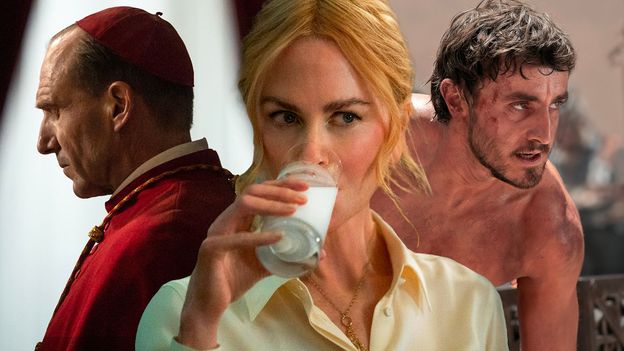




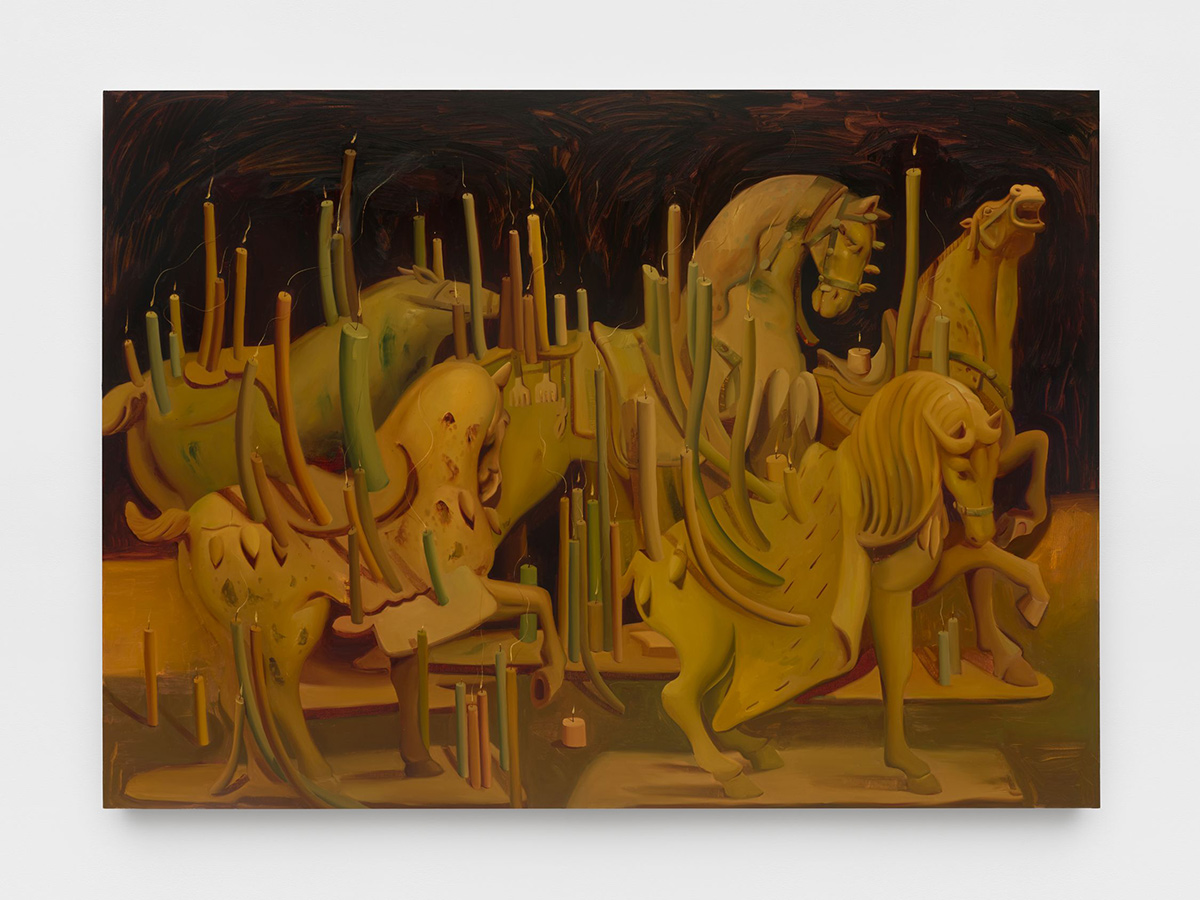
Leave a Reply